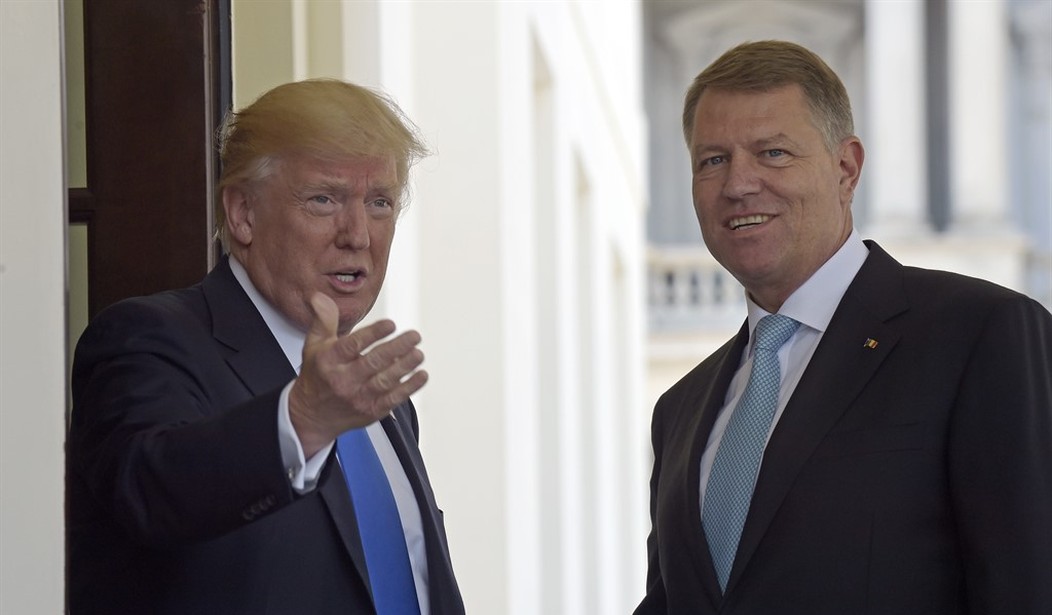The media made quite a big deal about Donald Trump’s decision to strike an endorsement of NATO’s Article 5 from his maiden speech in Brussels — and rightfully so. Will they cover the recovery? In response to a question at a joint press conference with Romanian president Klaus Iohannis in the Rose Garden, Trump affirmed “absolutely” that the US remains fully committed to the common-defense clause:
REUTERS: LIVE: Trump says committing U.S. to Article 5 of NATO agreement calling for mutual defense. … pic.twitter.com/PWXxGOpupw
— The Briefing Room (@TheBFRoom) June 9, 2017
Trump said on Friday the United States is committed to Article 5 of the NATO charter, which requires each member of the alliance to come to the defense of any other.
“I’m committing the United States and have committed, but I’m committing the United States to Article 5. And certainly we are there to protect,” Trump said at a joint news conference with Romanian President Klaus Iohannis in the White House Rose Garden.
Both H.R. McMaster and Mike Pence tried to cover for Trump on this point, saying that his presence at the event was a de facto endorsement of Article V. However, unlike any other major-party nominee in the post-WWII era, Trump had called the US commitment to NATO into question during the campaign. After his election, Trump continued to suggest that his attachment to NATO depending mainly on whether people paid their dues. This needed fixing, and needed fixing from Trump himself, since he’s the only person who can order troops into action for that common defense.
NATO’s deterrent factor relies on the US commitment to joint action, and any hint of indecision on that point could prove disastrous, especially with an aggressive Russia at the doorsteps of the Baltic States. Anyone scoffing at that point should recall the start of the 1991 Gulf War, where the US position on Kuwait got fumbled by the Bush administration, which gave Saddam Hussein no clear indication that we considered Kuwait’s territorial integrity a vital security interest. Hussein knew we would object, but had no idea that George H. W. Bush would go to war to expel him from Kuwait — and that mistake has had bad ramifications for decades.
Clarity prevents conflict. Ambiguity invites it. In that sense, it’s either serendipitous or no accident at all that Trump provided clarity on this point while meeting with the Romanian president, the first since Nicolae Ceauçescu to visit the White House. Unlike Poland and the Baltic states of Latvia and Estonia, Romania doesn’t share a border with Russia or a satellite of Moscow like Belarus, but it shares the Black Sea with Russia, and has Moldova on its eastern border, in which Vladimir Putin takes considerable interest. The Romanians understand the need for Article V better than most. They have long memories of Russian and Ottoman designs on their land, and comprehend the necessity of shared security organizations.
Now that Trump has issued a clear commitment to Article V, hopefully the same media outlets that highlighted its earlier omission will give the same amount of time and space to Trump’s recovery. If not, the White House will provide them a second opportunity to do so soon:
JUST IN: The White House releases a statement on President Trump's upcoming trip to Poland pic.twitter.com/dRgXglaKju
— NBC News (@NBCNews) June 9, 2017
Looks like the message got through that Trump needed to do some Article V fence-mending with eastern Europe.








Join the conversation as a VIP Member